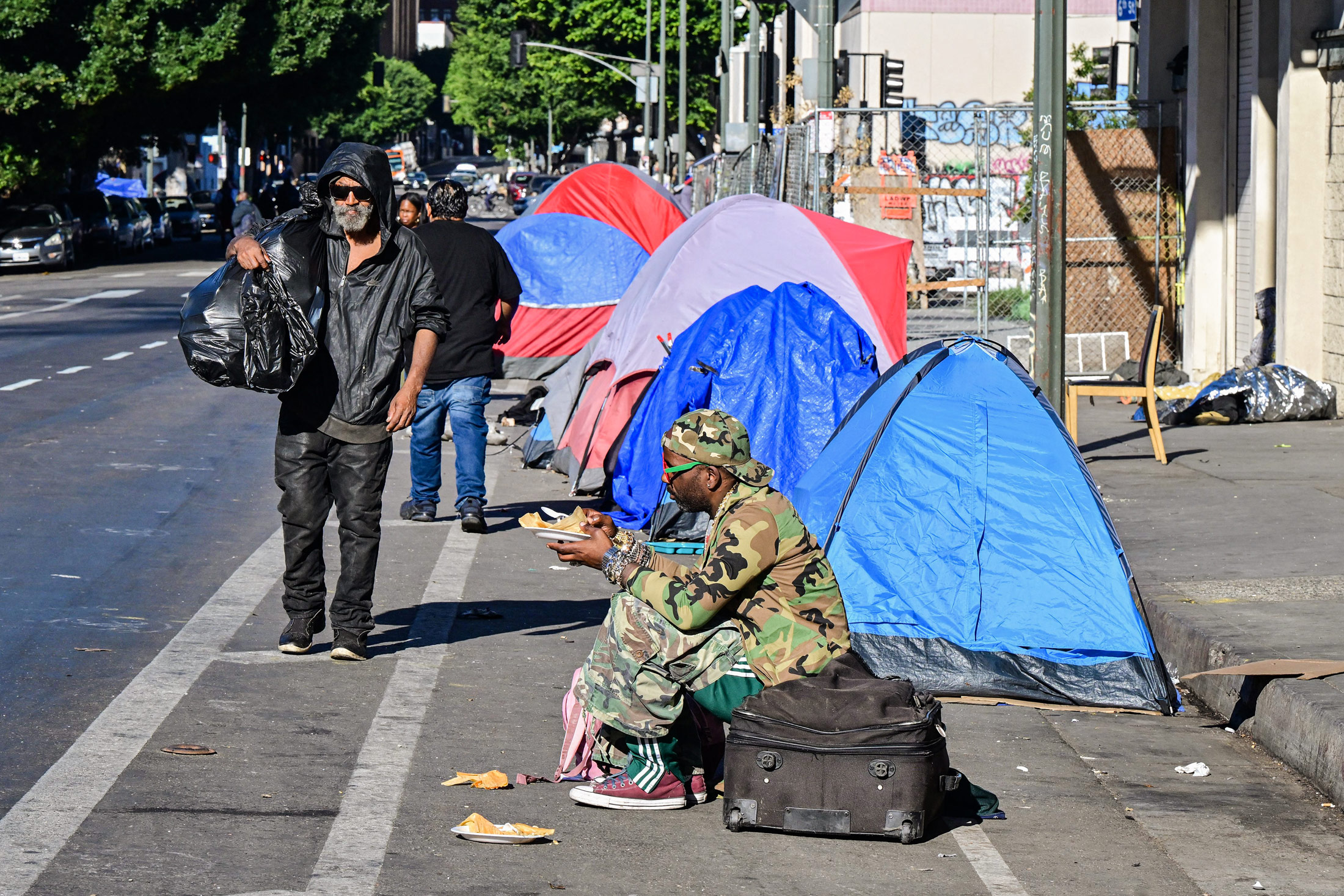Legislation in California related to increased transparency and accountability for a state homeless assistance program was vetoed by Gov. Gavin Newsom on July 15 because he said he believes it’s similar to language included in the newly signed 2024 budget.
Assembly Bill 2570—which was introduced by Assemblyman Joe Patterson and approved by the Legislature with bipartisan support—would have required the Homeless Housing Assistance and Prevention program, which provided grants to local jurisdictions, to submit an annual report to the governor and the Legislature on operations and accomplishments.
To be included in the report were the number of housing units assisted by funding, individuals and households served, distribution of units across the state, amounts of public and private funds used, and detailed information about assistance provided.
Mr. Newsom said he was rejecting the bill in a veto letter on July 15, calling it redundant because requirements calling for more transparency and reporting by the housing programs were included in the language of Senate Bill 166 in the state’s recently adopted 2024–25 budget.
SB 166, a so-called trailer bill further defining the state’s budget, requires an action plan showing performance and improvement due by Jan. 31, 2027, for all programs related to homelessness that seek funding in 2025.
Accountability measures in SB 166 include requirements to reduce existing and new homeless populations, increase the number of people entering permanent housing, and reduce the average length of time individuals remain homeless by improving outreach services.
Such measures will be evaluated in the Homeless Management Information System, overseen by the U.S. Department of Housing and Urban Development.
Due to the overlap between SB 166 and AB 2570, the governor said he couldn’t support the measure.
“The bill is redundant to these efforts and creates an unnecessary ongoing workload for the department without providing additional accountability or transparency to taxpayers,” Mr. Newsom said.
The bill’s author highlighted its unanimous support in the Legislature—although 13 lawmakers didn’t vote—and said he believed his bill was more granular and called for more details.
“This was a bipartisan bill with no opposition,” Mr. Patterson told The Epoch Times by email on July 16. “Clearly, the Legislature agreed on the need to rein in Newsom’s wasteful spending on ineffective homelessness programs.”
He also called attention to a report from April from the state auditor that found the $24 billion the state spent on homelessness between 2018 and 2023 was difficult to track and not effectively used—with the homeless population increasing over the same period.
“The state lacks current information on the ongoing costs and outcomes of its homelessness programs, because [it] has not consistently tracked and evaluated ... efforts to prevent and end homelessness,” the report read.
Mr. Patterson suggested his proposal would have been complementary to the budget plan and said the state needs to do more to control spending and maintain accountability.
“I’m glad we were able to get some safeguards written into the budget, but the state can’t keep cutting corners on accountability when dishing out billions of taxpayer dollars and seeing the problem get worse,” he said.

California Assemblyman Joe Patterson, R-Rocklin, speaks at a news conference in front of the state Capitol in Sacramento on June 6, 2023. (Courtesy of Assembly Republican Caucus)
The governor has also called for more accountability from the homeless program—which provides jurisdictions with one-time grants to develop or expand existing services.
While Mr. Newsom proposed a $260 million cut to the next round of funding for the Homeless, Housing, Assistance, and Prevention program in May, the Legislature rejected the plan and ultimately allocated the full $1 billion in its budget package to be distributed next year.
Funding allocated to cities and counties is available for outreach services, rehousing, operating subsidies, homeless prevention, and delivery of housing units.
The program received nearly $4 billion over the past five years, with accountability measures added in the most recent rounds of funding—including requiring applicants to develop action plans and performance goals.














